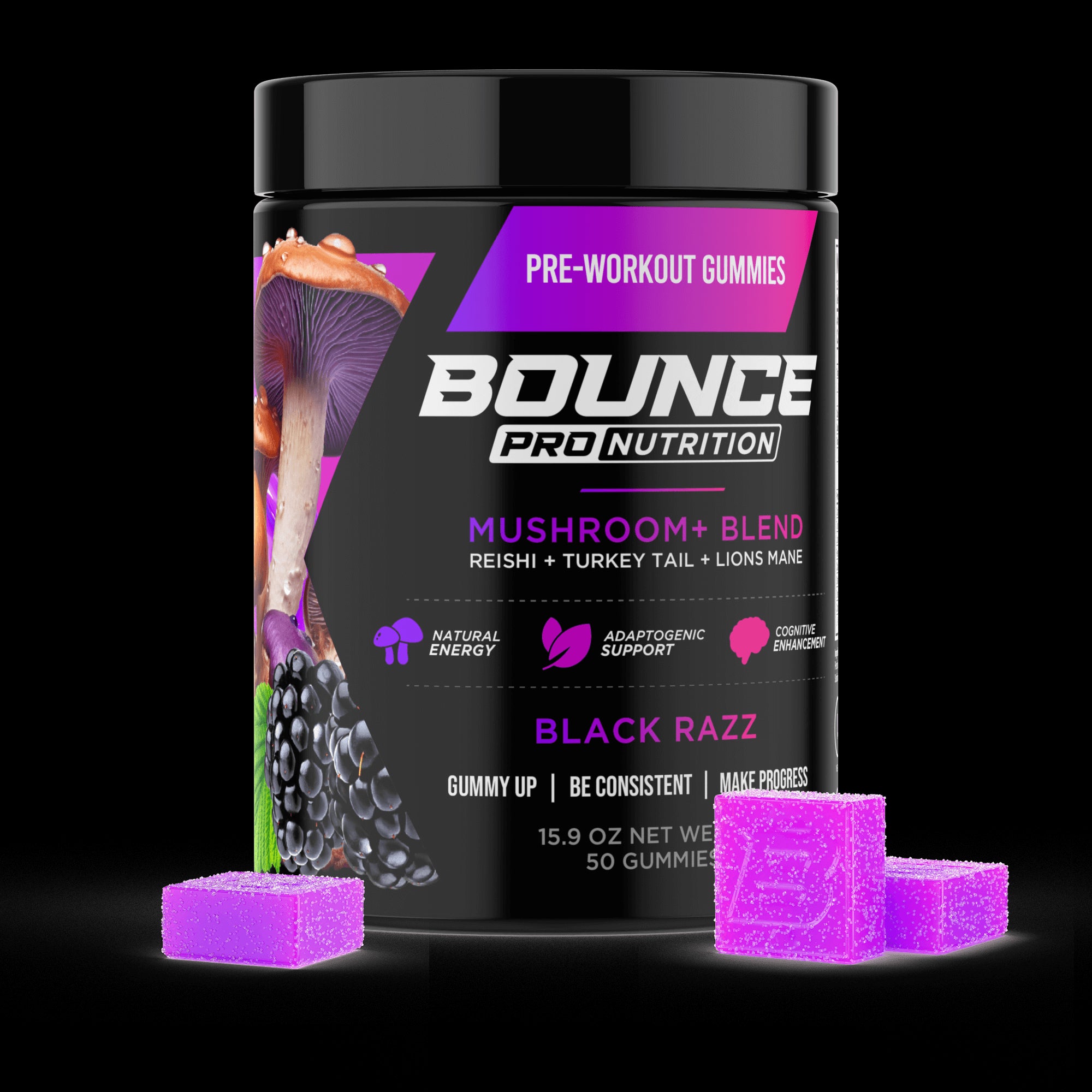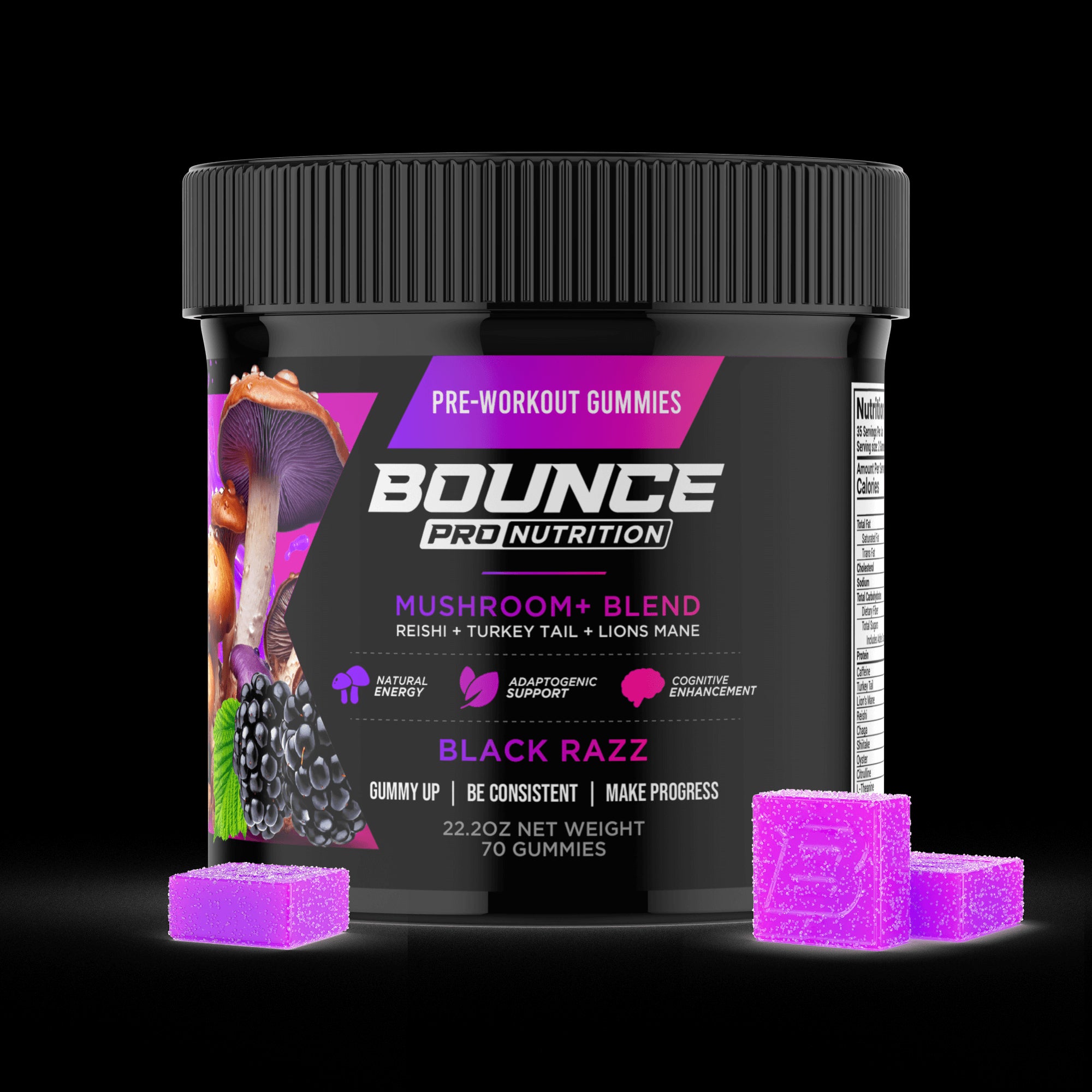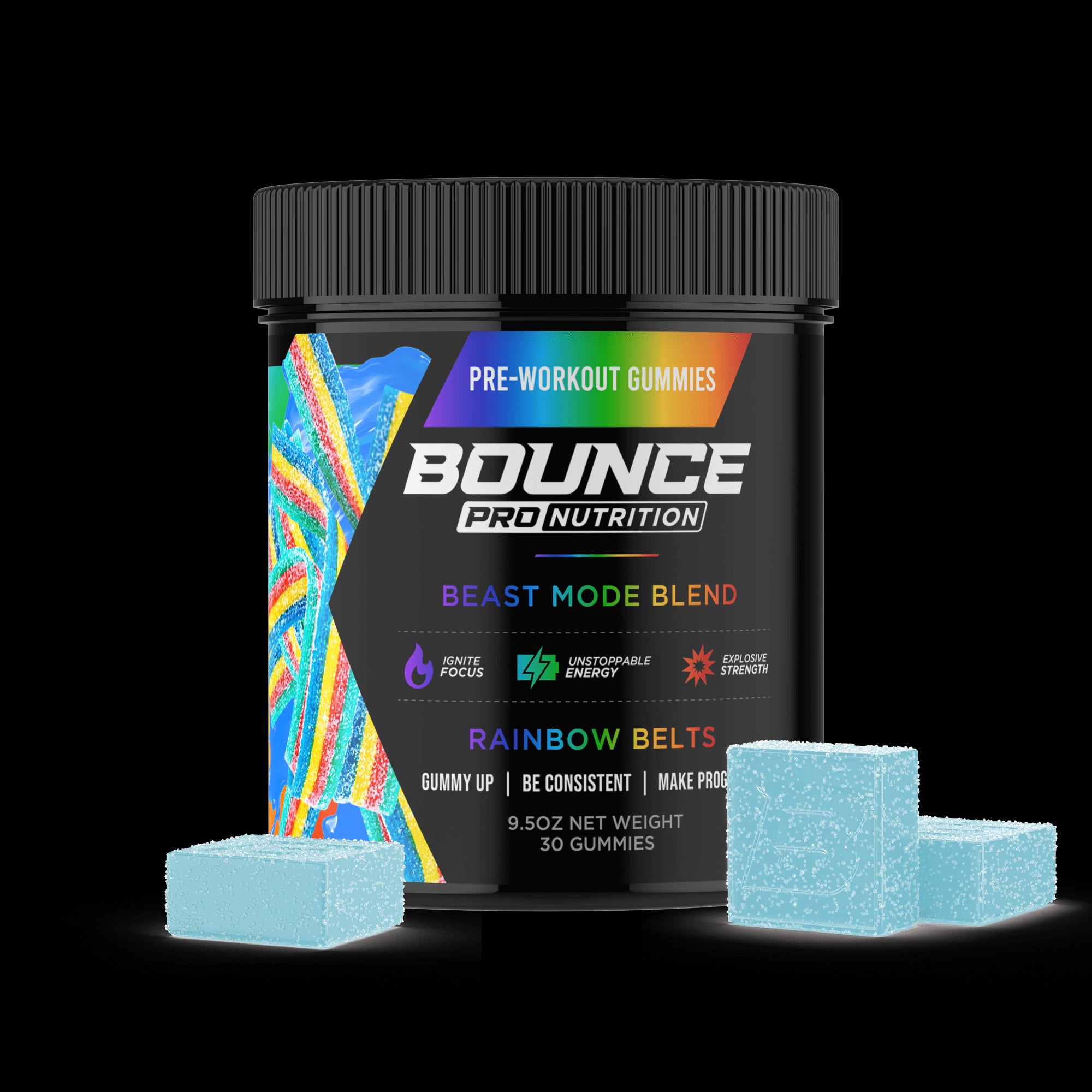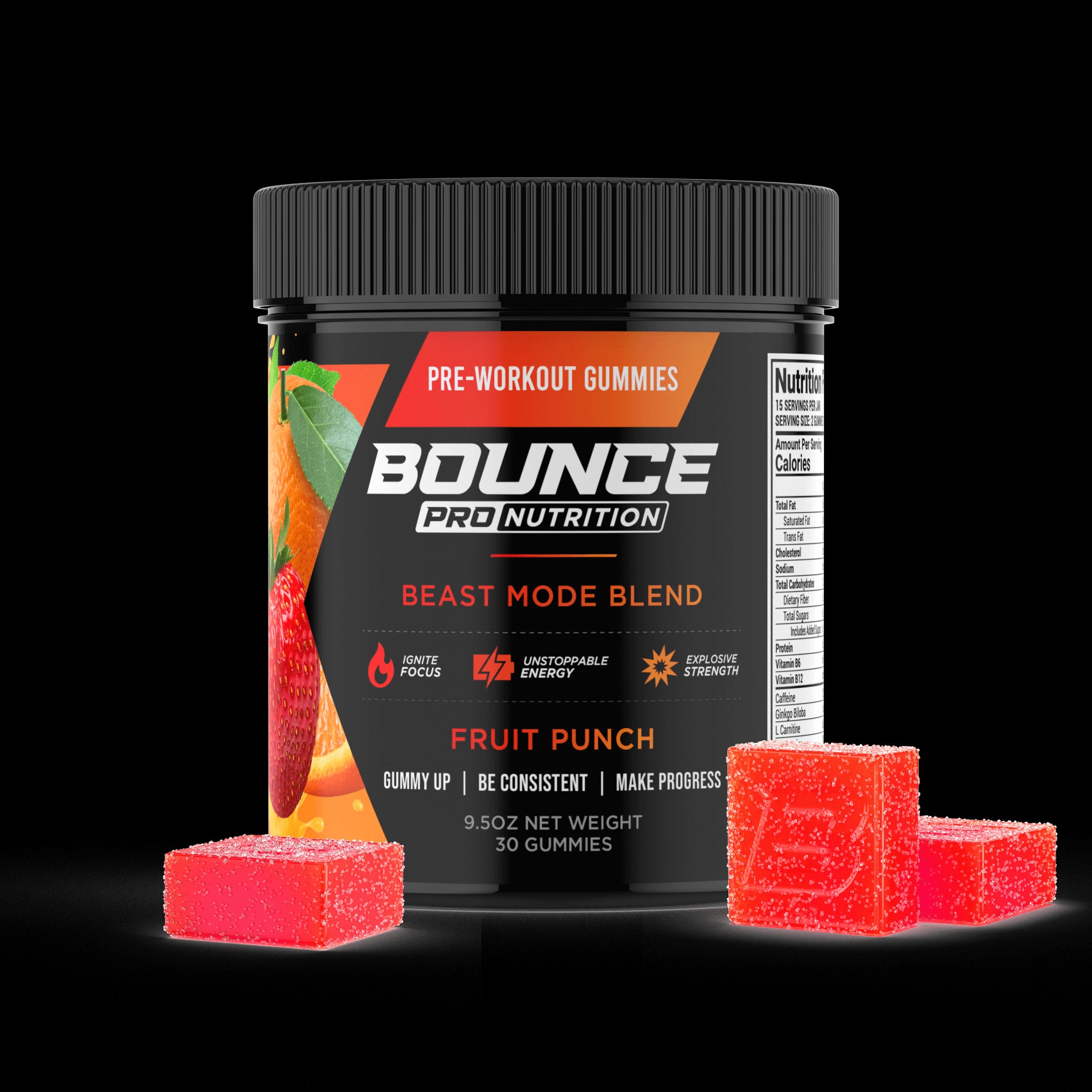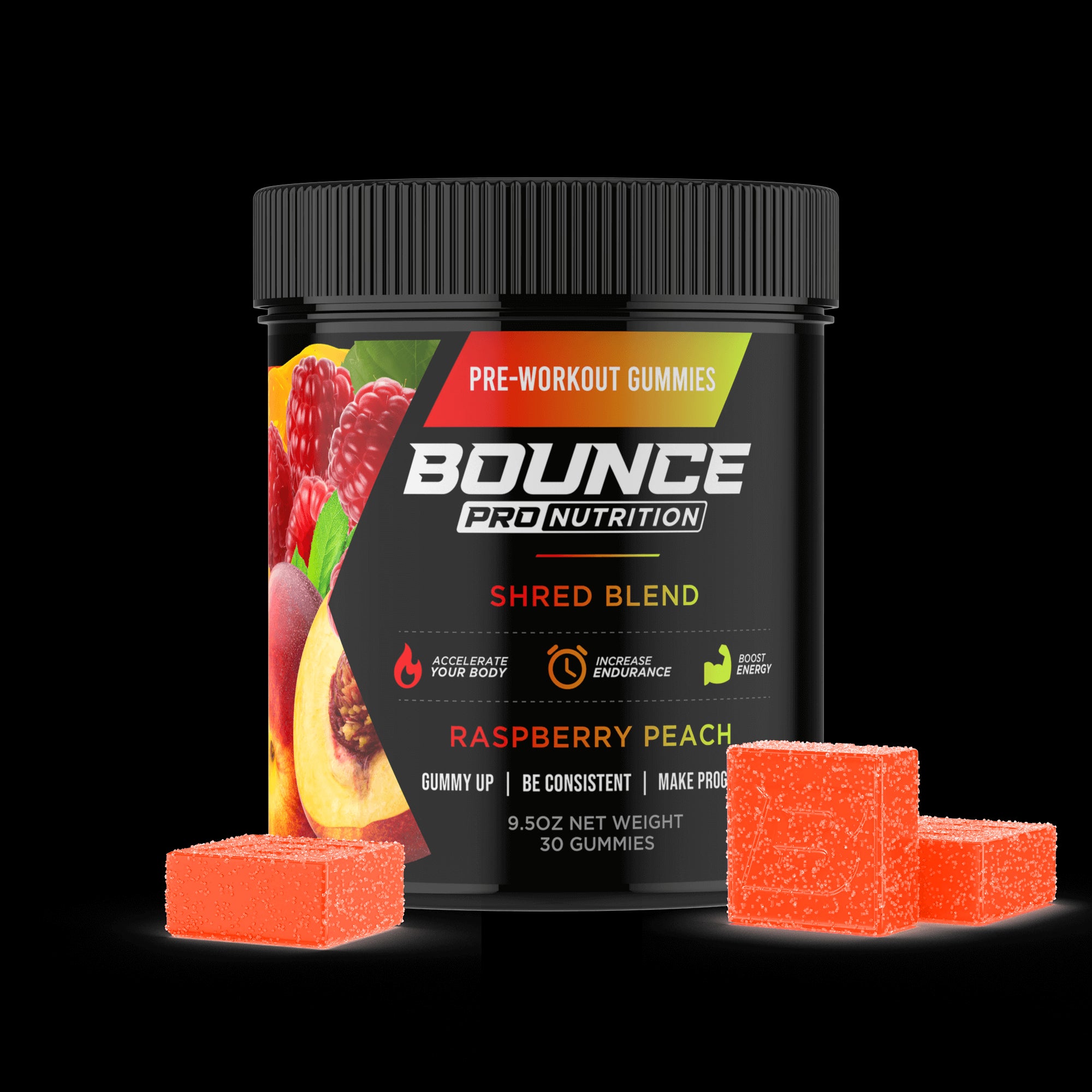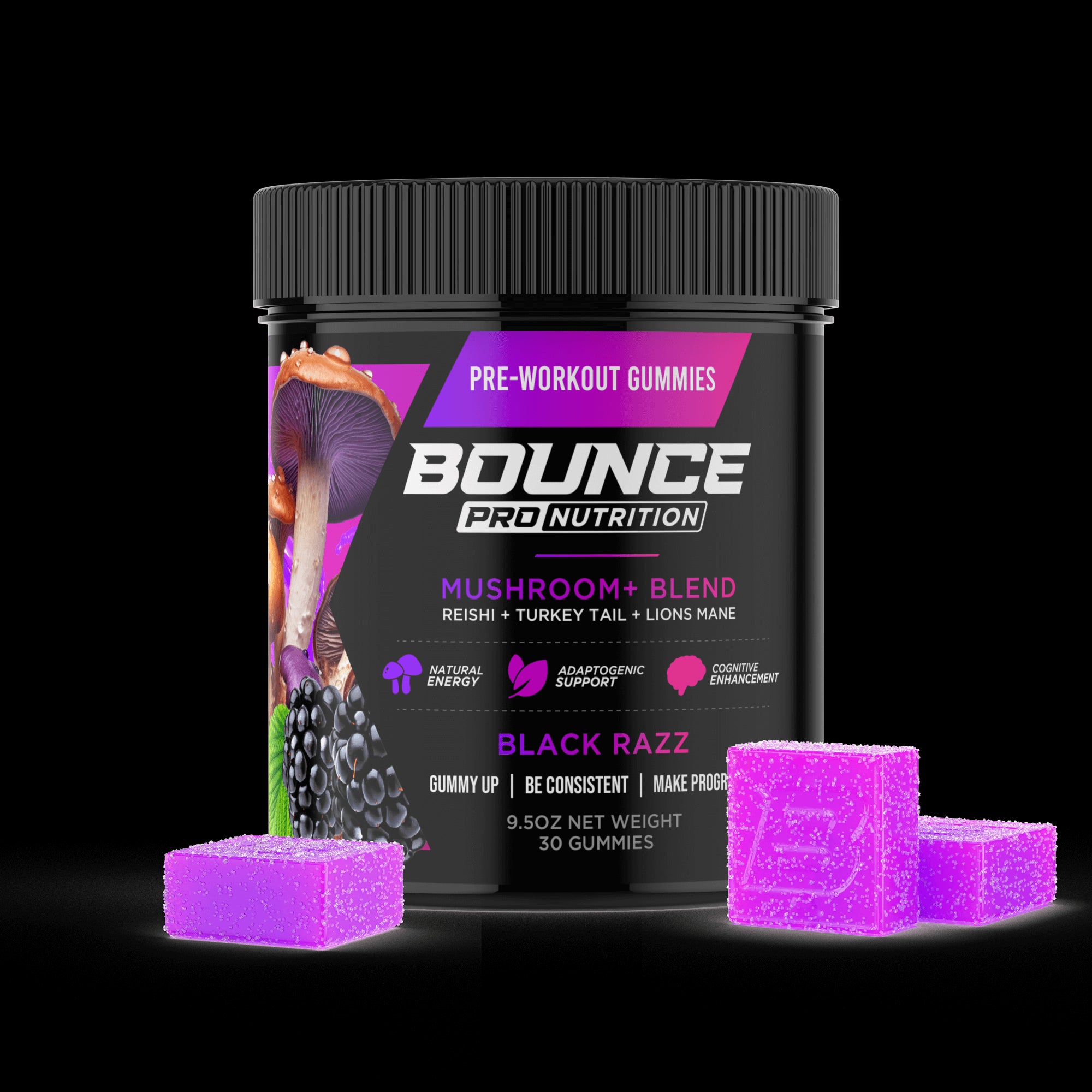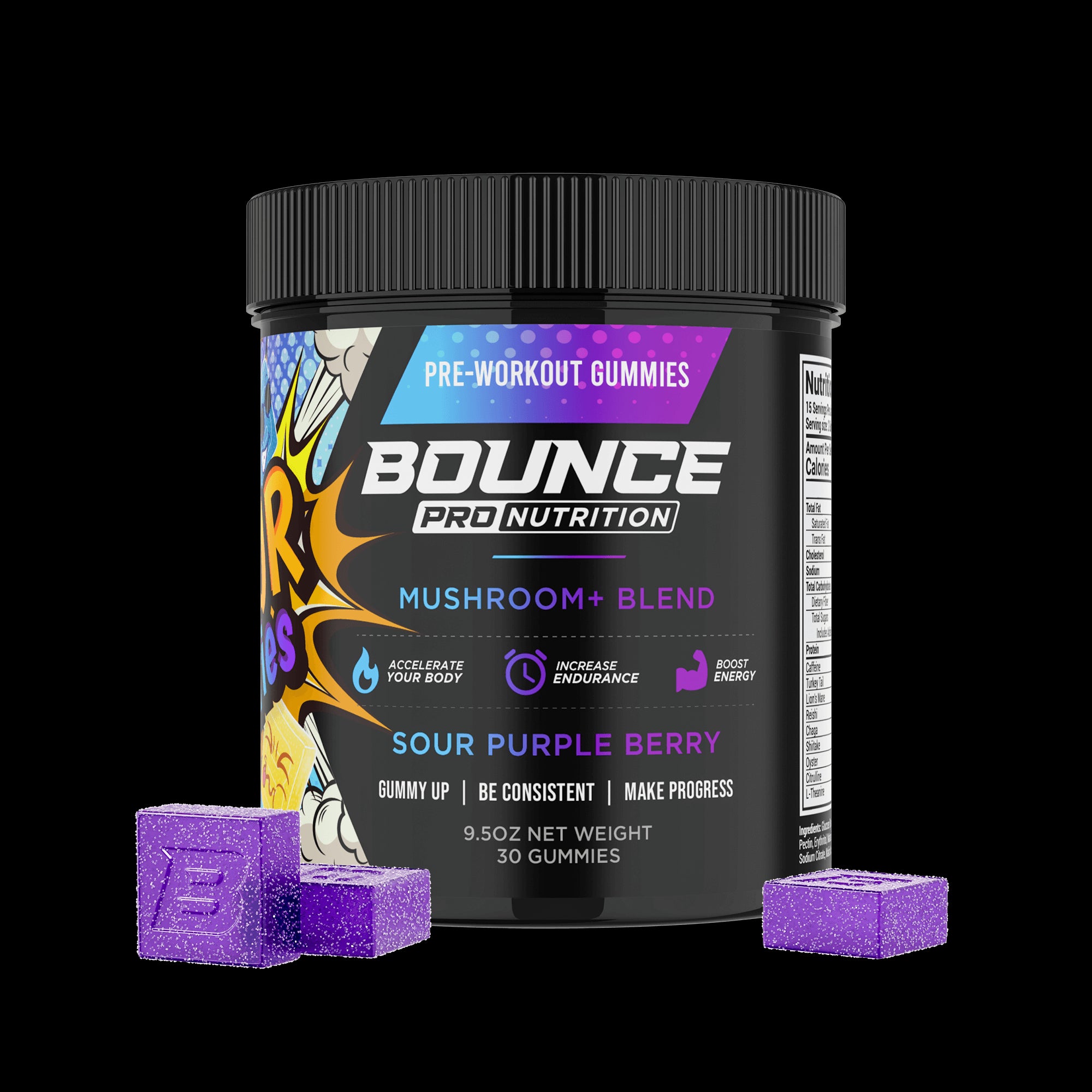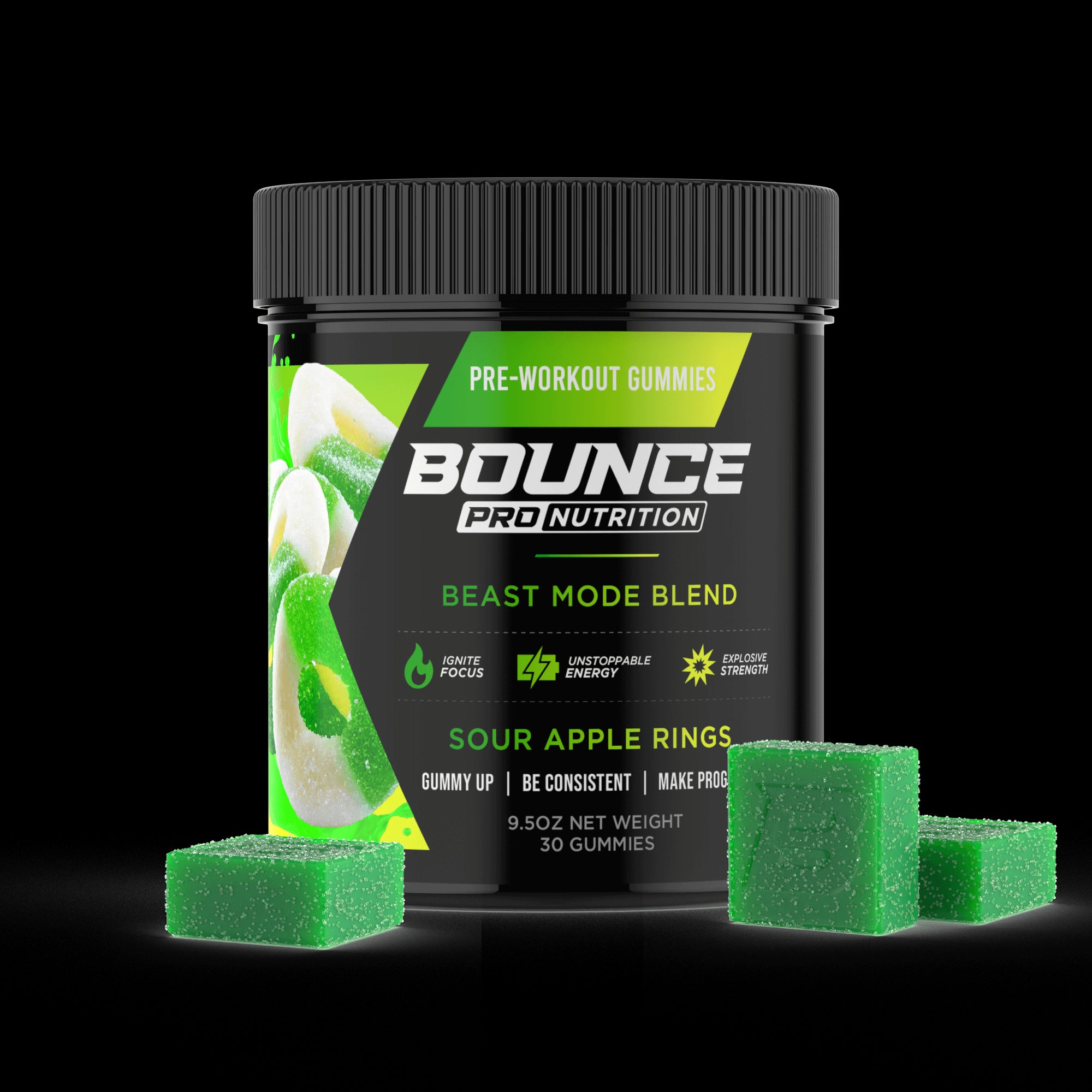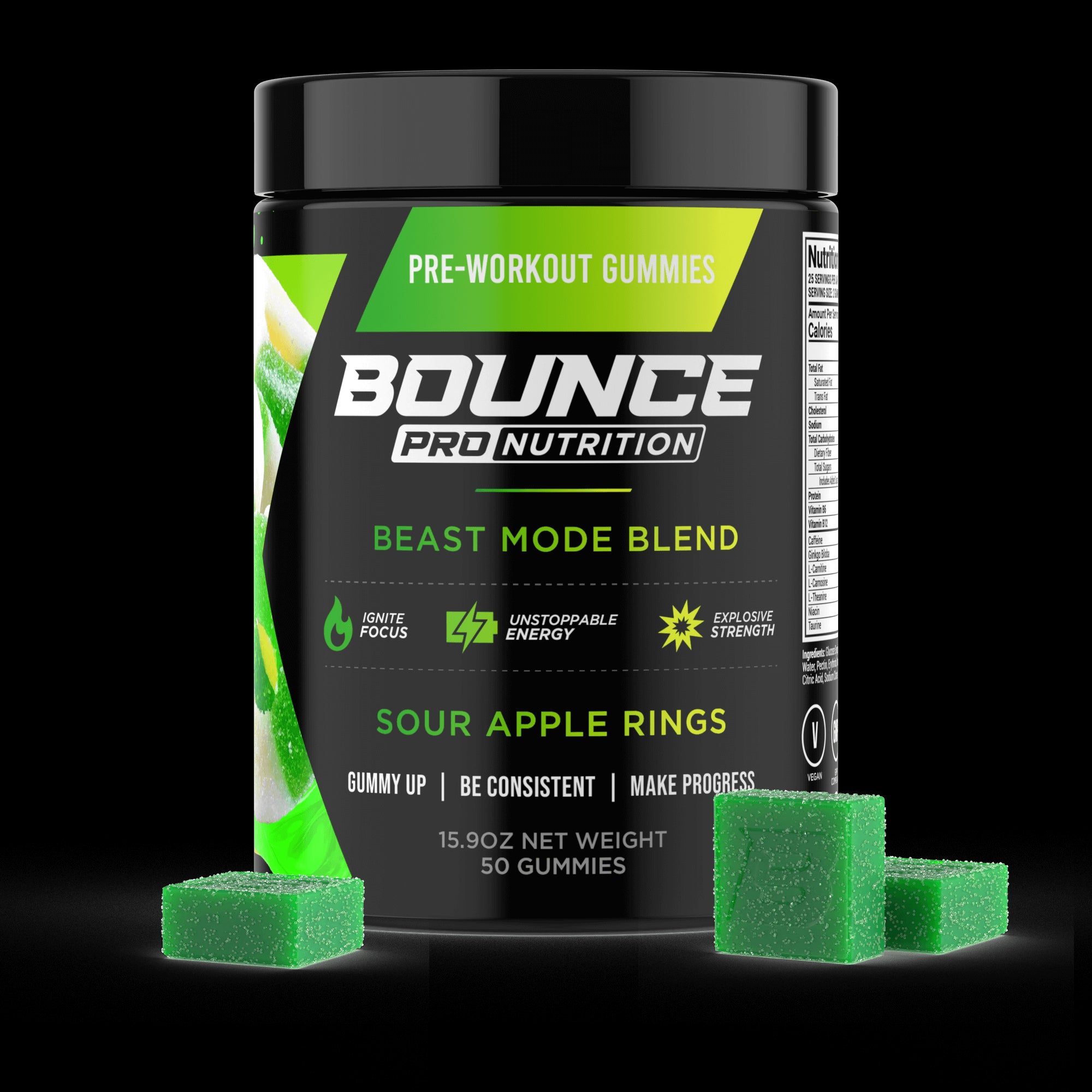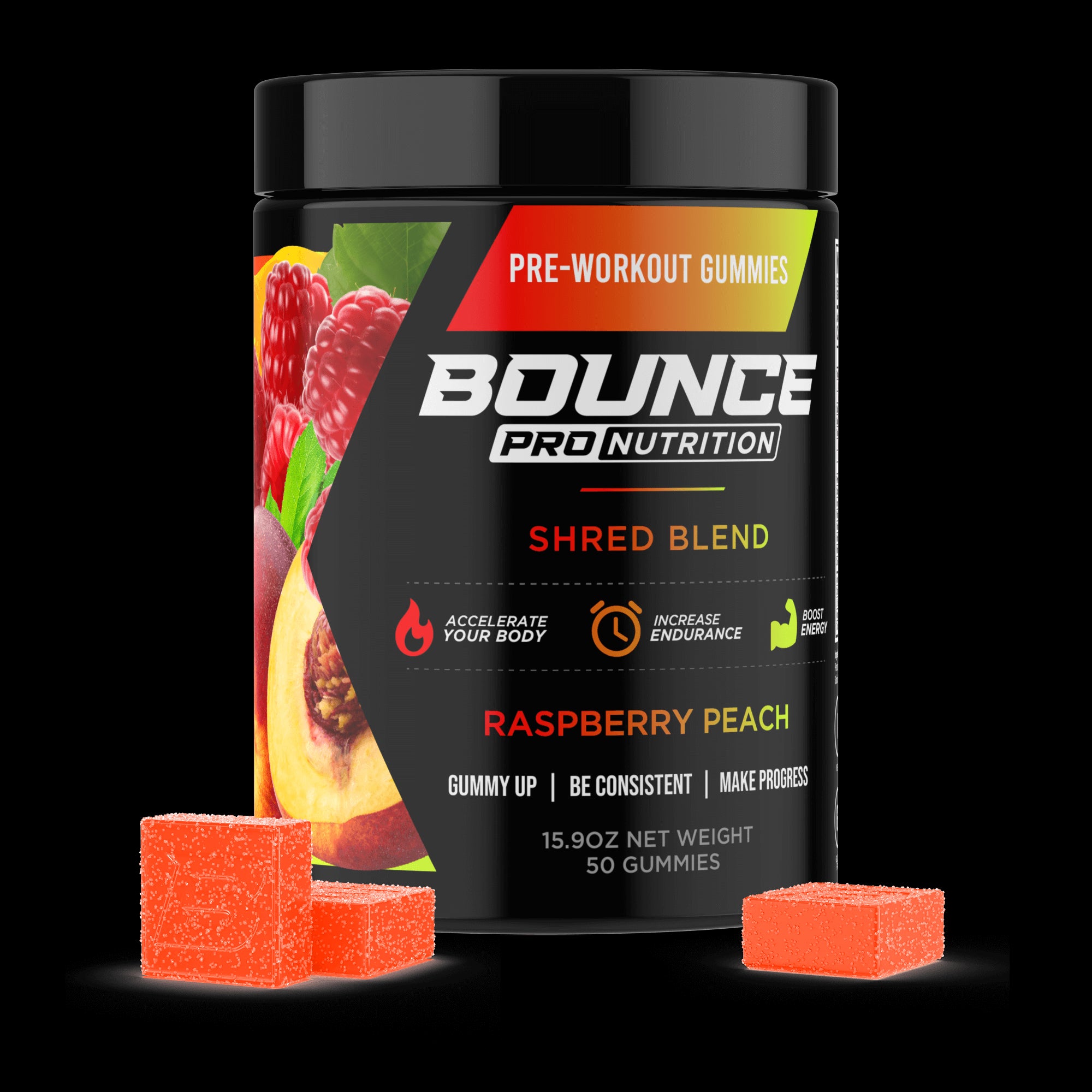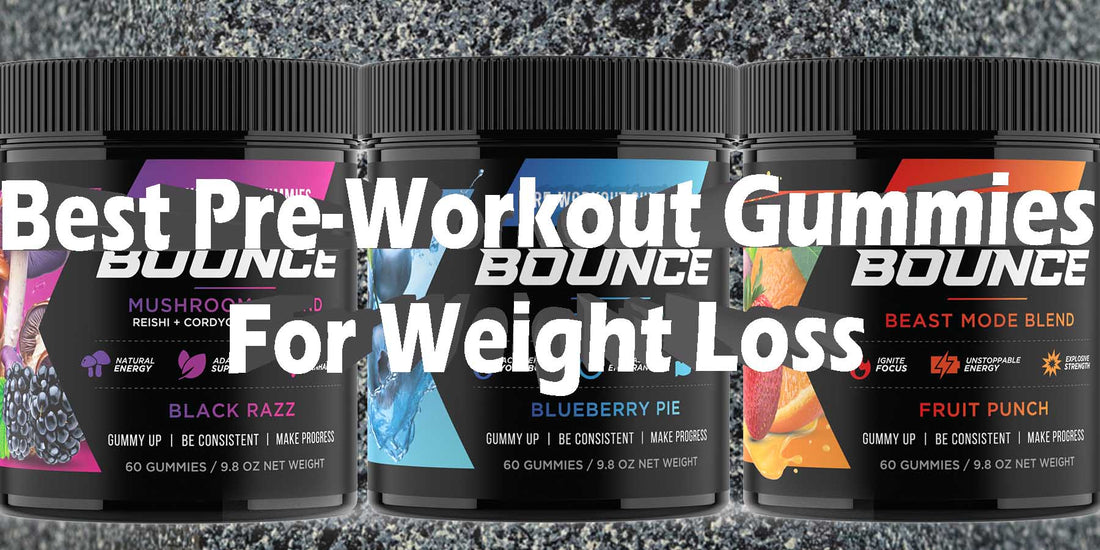Are you looking to boost your workout game? Great, because it’s sorta hard to top pre-workout gummies. These supplements are easy to take, and they’re formulated with loads of active ingredients aimed at improving performance in all kinds of ways. But, not all of them are the same, as some, for example, can help you put on muscle mass, while others can aid in weight loss.
If weight loss is your goal though, and you want to find a supplement that can push you in the gym while also helping you burn fat, we’re here to help. We’re going to cover a few pre-workout gummy options that could be particularly effective int terms of helping you achieve both your fitness and your weight loss goals.
TO BUY PRE-WORKOUT GUMMIES CLICK HERE
What is Weight Loss?
Weight loss refers to the reduction of total body mass, which can result from a loss of body fat, muscle mass, or fluid. This can occur unintentionally due to malnourishment or an underlying disease, or intentionally through efforts to improve an actual or perceived overweight or obese state.
Intentional weight loss involves adopting a healthier lifestyle that includes a balanced diet and physical activity. The primary strategy is to burn more calories than are consumed, typically through a combination of reduced calorie intake and increased physical activity. This approach can improve overall health, decrease the risk of chronic diseases such as heart disease, diabetes, and certain cancers, and enhance physical and mental well-being.
Going a bit further here, weight loss can have several positive effects on both physical and mental well-being, along with certain lifestyle improvements:
Physical Health Benefits:
- Reduced Risk of Chronic Diseases: Losing weight can significantly reduce the risk of developing chronic diseases such as heart disease, type 2 diabetes, high blood pressure, and certain cancers.
- Improved Cardiovascular Health: Weight loss often leads to lower cholesterol levels, reduced blood pressure, and improved heart health.
- Better Mobility and Pain Reduction: Excess weight can put a strain on joints and muscles. Weight loss can lead to improved mobility and reduced pain, particularly in areas like the knees and back.
- Improved Sleep and Breathing: Weight loss can improve sleep quality, reduce the risk of sleep apnea, and make breathing easier.
Mental Health Benefits:
- Enhanced Self-Esteem and Confidence: Achieving weight loss goals can significantly boost self-esteem and confidence.
- Reduced Symptoms of Depression and Anxiety: There's often a correlation between weight loss and the alleviation of symptoms related to depression and anxiety.
- Improved Body Image: Weight loss can lead to a more positive body image and a healthier relationship with one's body.
- Stress Reduction: Regular physical activity, often a key component of weight loss strategies, is known to reduce stress levels.
Lifestyle Improvements:
- Increased Energy Levels: Weight loss can lead to increased energy and vitality, making it easier to engage in daily activities.
- Improved Social Interactions: People who lose weight may feel more comfortable in social situations and engage more in social activities.
Keep in mind, it's important to approach weight loss in a healthy and sustainable way. Rapid or extreme weight loss can be harmful and is often difficult to maintain over the long term. It's generally recommended to aim for a gradual weight loss of about 1-2 pounds per week. Consulting with healthcare professionals like dietitians or doctors is advisable when planning significant changes to diet or exercise routines, especially for individuals with existing health conditions.
Why is it Hard for Some People to Lose Weight?
Losing weight can be challenging for several reasons, both physiological and psychological. Addressing these challenges often requires a multifaceted approach, including lifestyle changes, psychological support, and possibly medical intervention, depending on individual circumstances.
Reason #1: Metabolic Adaptation
As you lose weight, your body requires fewer calories to function. This adaptation can slow down weight loss, especially if your calorie intake doesn't adjust accordingly.
Reason #2: Hormonal Changes
Weight loss can trigger hormonal responses that increase hunger and cravings. For example, levels of the hunger hormone, ghrelin, can increase, making it harder to maintain a calorie deficit.
Reason #3: Psychological Factors
Emotional eating, stress, and other psychological factors can make it difficult to stick to a healthy eating plan. Food often serves as a source of comfort or a way to deal with emotional issues, which can sabotage weight loss efforts.
Reason #4: Lifestyle and Environment
Modern lifestyles often involve sedentary work, easy access to high-calorie foods, and social norms that encourage overeating. These factors can make it hard to maintain healthy habits necessary for weight loss.
Reason #5: Plateaus
It's common to experience weight loss plateaus, where your weight stays the same despite efforts. This can be discouraging and challenging to overcome.
Reason #6: Underlying Health Issues
Certain medical conditions like hypothyroidism, polycystic ovary syndrome (PCOS), and insulin resistance can make weight loss more difficult. Additionally, some medications can contribute to weight gain or make losing weight more challenging.
Reason #7: Genetic Factors
Genetics can influence body weight, fat distribution, and how your body processes food, which can affect weight loss efforts.
Reason #8: Inadequate Sleep
Poor sleep can disrupt hormonal balance, leading to increased hunger and appetite, making it harder to lose weight.
Reason #9: Unrealistic Expectations
Sometimes, expectations about how quickly or how much weight should be lost can lead to disappointment and demotivation when those expectations aren't met.
Reason #10: Lack of Consistency
Consistency in diet and exercise is key to losing weight. Inconsistent habits can lead to minimal or fluctuating results.
What are Some Strategies for Weight Loss?
Weight loss can be achieved through various strategies, each tailored to individual needs and lifestyles. Remember, what works for one person may not work for another. It's important to find a balance that fits your lifestyle and with recommendations from your doctor and/or nutritionist.
Strategy #1: Balanced Diet
Focus on a diet rich in fruits, vegetables, whole grains, and lean proteins. Reducing the intake of processed foods, sugar, and high-fat items can also be beneficial. Here are some additional reasons for getting on a balanced diet:
- Nutrient Density: A balanced diet is typically rich in nutrients. It includes a variety of foods like fruits, vegetables, whole grains, lean proteins, and healthy fats, which provide essential vitamins, minerals, and antioxidants. These nutrients help support overall health, and a well-nourished body can metabolize and burn fat more efficiently.
- Appetite Control: Balanced meals that include a good mix of protein, fiber, and healthy fats are more satisfying and can help control hunger. This makes it easier to reduce overall calorie intake without feeling deprived, which is essential for weight loss.
- Blood Sugar Regulation: Eating a balanced diet helps to regulate blood sugar levels. Foods high in fiber, such as whole grains and vegetables, slow down the absorption of sugar into your bloodstream, preventing spikes and crashes in blood sugar levels that can lead to increased hunger and overeating.
- Metabolic Health: A diet rich in whole, unprocessed foods can improve metabolic health, reducing the risk of conditions like insulin resistance and metabolic syndrome, which are often linked to obesity.
- Psychological Satisfaction: A restrictive diet can lead to feelings of deprivation, which might increase the likelihood of binge eating or giving up on the diet altogether. A balanced diet allows for a variety of foods, making it more sustainable and enjoyable, which is key for long-term weight loss success.
- Prevention of Muscle Loss: Adequate protein intake as part of a balanced diet is essential for preserving muscle mass during weight loss. Muscle tissue burns more calories than fat tissue, so maintaining muscle mass can help increase metabolic rate and weight loss.
Strategy #2: Portion Control
Incorporating portion control into your eating habits can be a highly effective strategy for weight loss and maintaining a healthy weight for several reasons:
- Calorie Control: Consuming more calories than your body needs leads to weight gain. Portion control helps in regulating the amount of food you eat, thus controlling the number of calories consumed. This is essential because even healthy foods can lead to weight gain if eaten in excessive amounts.
- Prevents Overeating: By controlling portion sizes, you can avoid overeating, which is a common issue when larger servings are available. This helps in maintaining a healthier balance of food intake.
- Enhances Awareness of Hunger and Fullness Cues: Practicing portion control encourages mindfulness in eating. You become more aware of your body's hunger and fullness signals, which can prevent eating out of boredom, stress, or habit.
- Balanced Nutrition: Portion control also involves balancing different food groups, not just reducing the amount of food. This ensures you get a well-rounded diet with all necessary nutrients, which is crucial for overall health and weight loss.
- Flexible and Sustainable: Unlike strict diets, portion control is a more flexible and sustainable approach to eating. It allows for a variety of foods to be included in your diet, making it easier to stick with in the long term.
- Reduces the Likelihood of Snacking and Binge Eating: By eating controlled portions at regular intervals, you can maintain stable blood sugar levels, which reduces cravings and the likelihood of snacking on high-calorie, unhealthy foods.
Strategy #3: Regular Physical Activity
Incorporating regular physical activity into your lifestyle is an effective way to aid weight loss and improve overall health. Here are some tips for integrating physical activity into your daily routine:
- Start Slowly: If you're new to exercise or returning after a long break, it's important to start slowly to avoid injury. Begin with low-impact exercises such as walking, swimming, or cycling.
- Set Realistic Goals: Establish achievable goals based on your current fitness level. As you progress, you can gradually increase the intensity and duration of your workouts.
- Incorporate Variety: To keep things interesting and work different muscle groups, include a variety of activities in your routine. This can include aerobic exercises (like jogging or dancing), strength training (using weights or resistance bands), and flexibility exercises (such as yoga or stretching).
- Be Consistent: Consistency is key in seeing results. Aim for at least 150 minutes of moderate aerobic activity or 75 minutes of vigorous activity per week, as recommended by health authorities.
- Monitor Your Progress: Keep track of your activities and improvements. This can be motivating and help you stay committed to your routine.
- Listen to Your Body: Pay attention to how your body feels during and after exercise. If you experience pain or discomfort, consider adjusting your activity or consulting a healthcare professional.
- Make it Enjoyable: Choose activities you enjoy. You're more likely to stick with an exercise routine if you look forward to it.
- Incorporate Activity into Daily Life: Besides structured exercise, look for opportunities to be more active throughout the day – take the stairs, walk or cycle to work, or do gardening or household chores.
- Stay Hydrated and Eat Healthily: Proper nutrition and hydration are important for fueling your body and maximizing the benefits of physical activity.
- Seek Support: Joining a class, working out with a friend, or hiring a personal trainer can provide motivation and guidance.
Strategy #4: Consistency and Routine
Of course, the best exercise for weight loss is one that you enjoy and can perform consistently. Establishing a consistent routine in both diet and exercise can lead to long-term success. These are some nice tips for doing just that:
- Establishing Healthy Habits: Consistency helps in forming habits. When you consistently follow a healthy diet and exercise routine, it becomes a part of your daily life, making it easier to stick to your weight loss goals.
- Metabolic Regulation: Your body thrives on routine. Eating and exercising at the same time every day can help regulate your metabolism, which is beneficial for weight loss.
- Tracking Progress: Consistency in your diet and exercise allows you to accurately track your progress. Irregular patterns can lead to fluctuations in weight and make it harder to understand what works for you. Keeping a food diary or using apps to track food intake and physical activity can help maintain awareness of your habits and progress.
- Psychological Benefits: A routine reduces the mental effort required to plan meals and workouts. This can lower stress levels and make the weight loss journey more manageable.
- Avoiding Yo-Yo Dieting: Consistent habits help avoid the pitfalls of yo-yo dieting (repeatedly losing and gaining weight), which can be harmful to your health.
- Building Resilience: Consistency helps in building resilience against temptations. When healthy eating and regular exercise are ingrained in your routine, it's easier to say no to unhealthy choices.
- Long-Term Success: Weight loss is not just about shedding pounds; it's about creating a sustainable lifestyle. Consistency in your habits ensures that the weight stays off in the long term.
- Adjustments and Adaptability: A consistent routine also makes it easier to notice when something isn't working, allowing you to make informed adjustments.
- Social and Emotional Support: A routine can also involve social aspects, like workout groups or shared meal planning, which can provide emotional and motivational support.
- Balanced Approach: Consistency doesn’t mean rigidity. It allows for a balanced approach to eating and exercise, making the weight loss journey a positive and healthy experience.
Strategy #5: Hydration
Staying well-hydrated is a vital part of weight loss and overall health. Water plays a crucial role in various bodily functions, so here are some key points on how hydration aids in weight loss:
- Appetite Suppression: Drinking water can help reduce hunger. Sometimes, the body confuses thirst with hunger, so staying hydrated can prevent overeating.
- Calorie Control: Water is a calorie-free alternative to energy-dense drinks like soda, juice, or sugary coffees. Replacing these drinks with water can significantly reduce overall calorie intake.
- Metabolism Boost: Hydration can help increase your metabolism. Some studies suggest that drinking water can temporarily boost your metabolic rate, thus burning more calories.
- Improved Exercise Performance: Adequate hydration enhances physical performance. Proper hydration can improve strength, power, and endurance, which can make your workouts more effective for weight loss.
- Detoxification and Digestion: Water helps to flush toxins from your body and aids in healthy digestion. Good hydration can help prevent constipation and support a healthy digestive system, which is essential for weight loss.
- Hydration and Fatigue: Often, dehydration can lead to fatigue, which might reduce physical activity. Keeping hydrated can maintain energy levels and encourage more physical activity.
To utilize water for weight loss effectively:
- Aim to drink water regularly throughout the day.
- Start meals with a glass of water to help with portion control.
- Replace calorie-laden drinks with water.
- Listen to your body's thirst signals and respond to them promptly.
Strategy #6: Adequate Sleep
Ensuring enough sleep each night can aid in weight management, as lack of sleep can lead to weight gain. To dive into this further:
- Hormonal Balance: Sleep helps maintain a healthy balance of the hormones that make you feel hungry (ghrelin) or full (leptin). Lack of sleep increases ghrelin and decreases leptin, leading to increased hunger and appetite.
- Metabolism Regulation: Sleep is crucial for the proper functioning of your body's metabolism. Insufficient sleep can cause a slower metabolism, reducing the number of calories your body burns at rest.
- Energy Levels and Physical Activity: Good sleep is essential for feeling energized and motivated. Being well-rested can improve your energy levels and motivation to engage in physical activity, which is important for burning calories and weight loss.
- Insulin Sensitivity: Sleep affects how your body reacts to insulin, the hormone that controls your blood glucose (sugar) level. Poor sleep can lead to higher blood sugar levels and could increase the risk of insulin resistance, associated with weight gain.
- Stress and Eating Habits: Lack of sleep can increase stress, which might lead to unhealthy eating habits like overeating or choosing high-calorie, low-nutrient foods.
- Muscle Recovery: During sleep, your body repairs and builds muscle tissues. Since muscle burns more calories than fat, having more muscle mass can help you burn more calories, even at rest.
Strategy #7: Mindful Eating
Mindful eating is an approach that focuses on being fully aware and present while you eat. It's about using all your senses to experience and enjoy your food. Here are some tips to practice mindful eating for weight loss:
- Eat Slowly and Chew Thoroughly: Take time to chew your food and savor the flavors. This can help you recognize your body's fullness signals and prevent overeating.
- Eliminate Distractions: Avoid eating while watching TV, working, or using your phone. Distractions can lead to mindless eating and overconsumption.
- Listen to Your Body's Hunger Cues: Before eating, ask yourself if you're truly hungry. Learn to differentiate between true hunger and eating out of boredom, stress, or habit.
- Choose Nourishing Foods: Focus on whole, nutrient-dense foods that are satisfying and healthful. This can lead to better choices that support weight loss.
- Appreciate Your Food: Take a moment to appreciate where your food comes from and the effort taken to prepare it. This can create a more meaningful and mindful eating experience.
- Eat Smaller Portions: Start with smaller portions and assess your hunger after finishing. You can always eat more if you're still hungry.
- Practice Gratitude: Reflect on the positives about your meal and be thankful for the nourishment it provides. This can lead to a more satisfying eating experience.
- Keep a Food Journal: Writing down what you eat can increase your awareness of eating habits and patterns, aiding in mindful eating.
Strategy #8: Avoid Crash Diets
"Diet crashes" typically refer to a situation where someone rapidly and drastically changes their eating habits, usually to lose weight quickly. This approach is often seen as unsustainable and potentially harmful for several reasons:
- Nutritional Deficiencies: Extreme diets may lack essential nutrients, leading to health problems over time. Balanced nutrition is crucial for the body's overall functioning and well-being.
- Metabolism Slowdown: When calorie intake is severely reduced, the body may adapt by slowing down its metabolism to conserve energy. This can make it more difficult to lose weight over the long term and can lead to weight gain once normal eating patterns are resumed.
- Psychological Effects: Strict dieting can lead to an unhealthy relationship with food, including feelings of guilt or failure. It can also trigger disordered eating patterns in some individuals.
- Short-Term Results: While crash diets might lead to rapid weight loss, this is often not sustainable. Much of the weight lost is typically water weight and muscle mass, not fat. Once the diet ends, it's common for people to regain weight.
- Physical Side Effects: Extreme diets can cause fatigue, irritability, dizziness, and other physical side effects due to inadequate calorie and nutrient intake.
Tip: Instead of extreme diets that promise quick results, aim for gradual, sustainable changes in your eating habits.
What are Pre-Workout Gummies?
Pre-workout gummies are individual gummies that are infused with certain active ingredients associated with exercise performance. The active ingredients that they contain can really differ depending on the company, but they each aim to offer benefits related to things like stamina, energy, focus, mood, muscle strength, muscle recovery, and circulation.
What are the specific ingredients in these gummies, then? Well, again that can differ depending on the product, but they usually contain some combination of caffeine (for energy), amino acids (for endurance, gains, and strength), and other natural ingredients that can boost motivation, stamina, focus, and other things we look for when we’re trying to get through a grueling gym session.
Now, pre-workout gummies aimed at helping you lose weight can contain additional ingredients that encourage the burning of fat, while boosting metabolism, and supporting your body to get more out of your workout sessions so you can shed pounds more quickly.
Best Pre-Workout Gummies For Weight Control
These days, there are lots of pre-workout gummies on the market these days, each with a very distinctive formula. In order to select these pre-workout gummy formulas, we paid attention to certain factors – the main one being whether or not it contains ingredients that support weight loss. Otherwise, we took note of the factors below:
- Potency: Pre-workout gummies can contain exceptional active ingredients, but if those ingredients aren’t actually present in high enough concentrations, you’re not going to get any kind of noticeable results.
- Active Ingredients: Pre-workout gummies can contain any variety of ingredients that are responsible for the effects of the pre-workout gummy, like those made to boost energy and those which can improve focus and mood. Some active ingredients are more “proven” and safer than others, with some being tried-and-true for decades, and others being fads that just don’t ultimately deliver.
- How They Taste/Their Texture: The bottom line is that if a gummy doesn’t taste good, you’re not going to want to keep eating it, and so even if it delivers in efficacy, it’s a letdown. The same goes for texture, since some companies make great-tasting pre-workout gummies, but the texture is just too off-putting.
- Inactive Ingredients: Inactive ingredients are also very important, with natural ingredients always being ideal. We stayed away from pre-workout gummies that contain lots of fillers, artificial additives, and known allergens. Of course, we also avoided gummies that contain ingredients that can pack on pounds.
What are the Top Pre-Workout Gummies for Weight Loss?
These are our favorite formulas specifically for weight loss, so that you can get started with a new and effective routine. Again, this is all based on the criteria above, and these formulas each contain ingredients that can help you reach your weight goals on top of boosting performance.
Pre-Workout Gummies for Weight Loss #3: Bounce Nutrition Shred Blend Gummies
Shred Blend tastes just like mouthwatering blueberry pie, and it offers the ideal balance between different plant derivatives known for their powerful effects. L-theanine, caffeine, magnesium, ashwagandha, and tart cherry work together synergistically to give you the energy and concentration you need to get through a training session, all while easing stress and supporting metabolism.
Pre-Workout Gummies for Weight Loss #2: Bounce Nutrition Best Mode Blend Gummies
Next, we have Beast Mode gummies, which consists of caffeine, gingko balboa, l-theanine, l-carnitine, and Vitamin B12, in high enough concentrations to give you powerful effects that can help you stay in the game no matter how grueling the type of exercise. The active ingredients offer stimulating properties that can help you burn fat more efficiently, while supporting your metabolism so that you can shed more calories while you work out.
Pre-Workout Gummies for Weight Loss #1: Bounce Nutrition Mushroom Blend Gummies
This enticing Mushroom Blend pre-workout formula from Bounce Nutrition offers a totally unique take on pre-workout supplements. Its dreamy Black Razz flavor and succulent texture alone is worth trying, but it’s the blend of active ingredients that really impresses. Magnesium, caffeine, lion’s mane, cordyceps, and reishi mushrooms are the active ingredients in question for this formula, and while their main goal is to boost cognition to keep you mentally engaged in your workout routine, they also support the body beyond exercise, to help you burn fat in a more efficient way whether you’re working out or not.
Could These Pre-Workout Gummies Help You Achieve Your Dream Body!
For effective and sustainable weight loss, it's generally recommended to adopt a balanced diet and make gradual lifestyle changes that can be maintained in the long term. Again, consulting with a healthcare provider or a dietitian can also provide personalized guidance based on individual health needs and goals.
Pre-workout gummies come in various formulations, and some are more suitable for those trying to lose weight than others. Fortunately, these Bounce Nutrition gummy formulas all have what it takes to help support you on your weight loss journey. How? Well, by simply providing you with what’s needed in order to maximize your exercise regimen, without packing on the pounds with unnecessary amounts of sugar.



